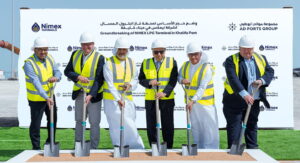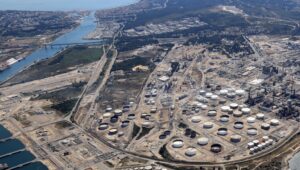Bringing together energy professionals from all over the world, International Energy Week is the place where oil and gas industry leaders are joined by senior officials and influencers from the wider energy world, as well as government representatives, environmental NGOs, and scientists and academics, to assess the technologies, business models, and skills needed for a net zero future. This year’s event focused on delivering a just energy transition. The first mission was to define this – a just transition would not only deliver green energy, but would be considerate of the implications this could have regarding job losses, energy bills […]
This post is only available to members. Please login below, or purchase Tank Storage Magazine Subscription – Print & Digital Subscription or Tank Storage Magazine Subscription – Digital Subscription to access this post.
log in
log in










